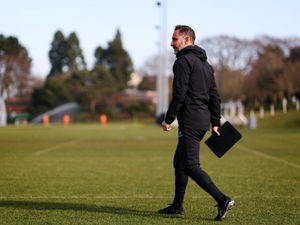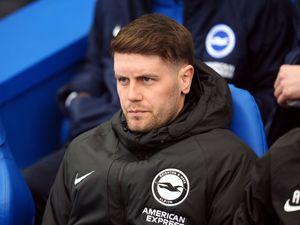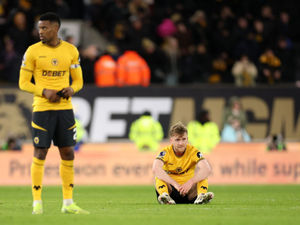John Ward: A foot in the camp of both Wolves and Aston Villa
Of the distinguished career enjoyed by John Ward as player, coach, assistant manager and manager, his spells at Wolves and Aston Villa were very much among the highlights.
Watch more of our videos on ShotsTV.com
and on Freeview 262 or Freely 565
A career which spanned all the divisions, and all those different roles, but one in which his assignments with Saturday’s derby day opponents in the West Midlands were both cherished and enjoyed.
“I obviously have a soft spot for both clubs following my times there with really fond memories,” Ward recalls.
“They have both changed massively over the years but, when you look back, at Villa we were taking part in European competition back then as well and at Wolves I got to work with some great players such as Steve Bull.
“I really respected those opportunities to work at two brilliant clubs which not too many people get the chance to do, and something I look back on and feel very fortunate to have experienced.”
There is that famous quote from the American civil rights activist Maya Angelou that ‘people will forget what you said, people will forget what you did, but people will never forget how you made them feel.’
Ward was always a coach or manager whose style of leadership and one-to-one guidance and support left players with absolutely no doubt how to feel. And, for those players, for the overwhelming majority of the time, it would be a positive experience.
Ward was always a hugely respected figure among players and fellow staff. Those in the dressing room knew what to expect of him. Open, honest, approachable, loyal, but also demanding of high standards and utmost professionalism, to the mutual benefit of everyone.
In the case of the then young Wolves defender Joleon Lescott, himself someone who experienced life at both Molineux and Villa Park, it was a case both of what Ward said, and also how he made him feel.
In an interview with Wolves media team almost 20 years after the event, Lescott recalled his first Wolves goal when, having seen the man he was marking - John Hartson - open the scoring for Wimbledon, levelled with a goal of his own and went over to celebrate in front of fans, pointing to the name on the back of his shirt.
Lescott reflected: “After the game I was ‘talking off’ and our coach John Ward, who was a good guy, said: ‘You don’t need to show them your name, son. They already know that.’
“I was a bit embarrassed, so I never did it again.”
Remembering how it made him feel. Almost two decades later. One of so many stories which people could tell about the enduring influence of John Ward, continuing now with his part in the League Managers’ Association including acting as a mentor – when needed – to managers of the modern day.
“I wasn’t aware that Joleon had said that but it’s really nice to hear, especially from such an honest and straightforward person as he is,” comes the Ward response.
“And what a very good player he was as well.
“I always felt that an important part of being a manager or coach is that you have to be honest with people and tell them what you think, especially in those sorts of situations.
“There are ways to talk to people, and to pass that information on, but you shouldn’t keep things from them.
“In that example with Joleon I am sure it would just have been a case of reminding him that he was doing brilliantly, and that he was a good lad, but just to be careful.
“A reminder that there will be days to follow which wouldn’t have been as good as that one and then there would be people pointing fingers at him instead.
“Joleon is obviously a player who will have taken everything on board from all his managers and coaches and went on to enjoy a brilliant career.”
Much of that leadership and empathy no doubt stemmed from Ward’s own experiences and DNA, but was also influenced by Graham Taylor, with whom he shared so many footballing memories over a considerable length of time.
Ward, while very much his own man, was, by his own admission, both influenced by and indebted to the guidance and counsel of Taylor on so many different occasions during his career.
It all started when as a striker with his hometown club, Lincoln City, for whom he would go on to score 99 goals in 263 games.
Ward arrived late into the professional game, but any sense of trepidation soon disappeared when, on his first day with the Imps, he was shown to his peg in the dressing room, and it was next to Taylor.
“As I look back now, that was one of the biggest things that ever happened to me,” Ward explains.
“I was very nervous on my first day at a professional football club and Graham was the captain of the team, and immediately made me more relaxed.
“’Come on Wardy, let’s get on with it,’ he said. From that moment on, I was Wardy, which was great.
“I could sit and talk to him about anything and everything – he was our captain and leader on the pitch and would go on to have a major influence on my career.”
Taylor had completed his coaching badges by his late twenties, and became Lincoln manager after hanging up his boots, leading the team to the Fourth Division title before moving on to Watford where he took the team from Fourth to First Division in the space of just five years.





